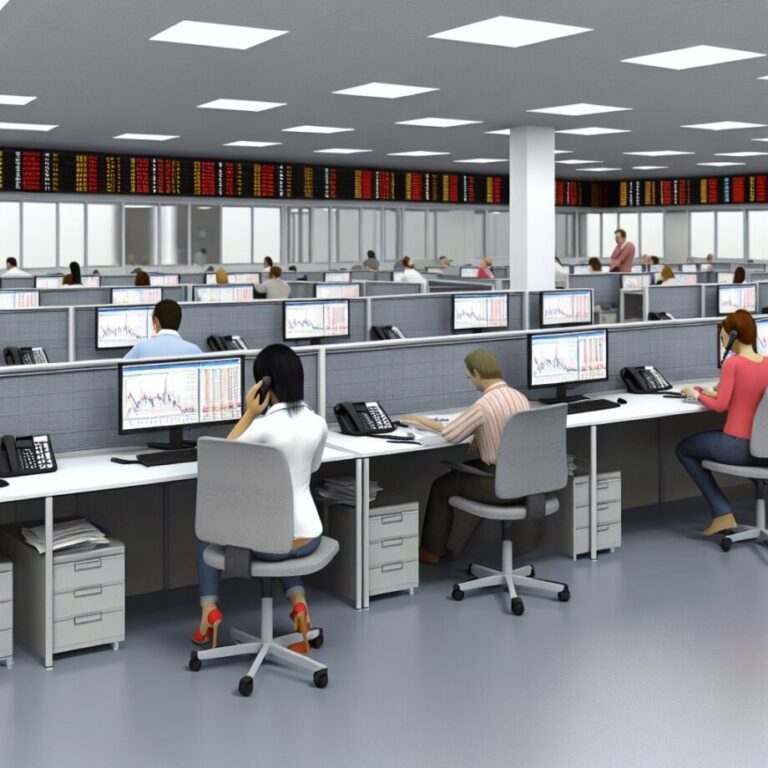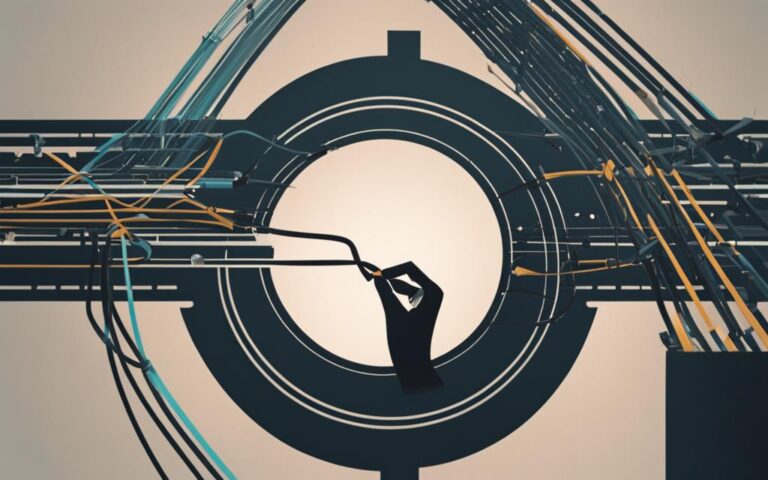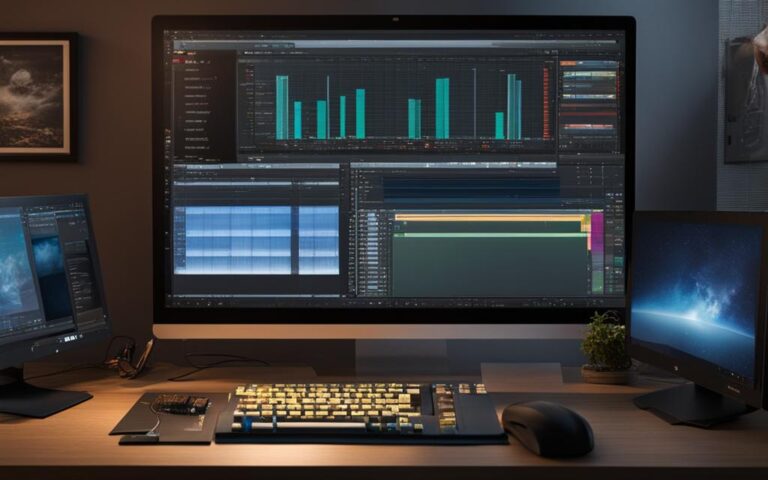If you’re an avid gamer, optimizing your computer for gaming performance is crucial to enhance your gaming experience. By taking steps to maximize your computer’s capabilities, you can achieve higher frame rates, faster loading times, and smoother gameplay.
In this comprehensive guide, we will explore various techniques and tips to optimize your computer for optimal gaming performance. From assessing your hardware requirements to adjusting system settings and utilizing game optimization tools, we will cover every aspect of computer optimization for gaming.
By following the steps discussed in this guide, you can unleash your PC’s true potential and enjoy an enhanced gaming experience. So, let’s dive in and explore the world of computer optimization for gaming performance!
Understanding the Importance of Computer Optimization for Gaming
As a gamer, you always strive to improve gaming performance on your computer. By implementing specific techniques to increase gaming performance on your computer, you can maximize your gaming experience. But first, it’s essential to understand the impact of computer optimization on gaming.
A properly optimized computer can offer better frame rates, shorter loading times, and an overall smoother gaming experience. On the other hand, a poorly optimized computer can lead to frequent lags, freezes, and crashes, negatively affecting your gameplay experience.
Therefore, optimizing your computer for gaming is not merely a luxury, but a necessity. By taking steps to optimize your computer, you can achieve the best possible gaming performance and enjoy uninterrupted gaming sessions.
Assessing Your Computer’s Hardware Requirements
Before you begin optimizing your computer for gaming, it’s essential to assess your computer’s hardware capabilities. This will help you understand whether your current components can handle your favorite games or if you need to upgrade your system.
Start by evaluating your CPU, GPU, RAM, and storage. Here are some tips for each component:
CPU
Your CPU is the brain of your computer and is responsible for executing instructions. To determine if your CPU is suitable for gaming, check its clock speed and the number of cores. Generally, a higher clock speed and more cores mean better performance. You can check your CPU’s specifications by following these steps:
- Right-click the Windows icon in the taskbar and select “System”.
- Under “Device specifications”, you will find your CPU model and clock speed.
- To determine the number of cores, press “Windows + R”, type “msinfo32” and press “Enter”. Under “Processor”, you will find the number of cores.
GPU
Your GPU, or graphics card, is responsible for rendering images on your screen. To determine if your GPU can handle your favorite games, check its VRAM, clock speed, and memory bus. Generally, a higher VRAM and clock speed mean better performance. You can check your GPU’s specifications by following these steps:
- Right-click the Windows icon in the taskbar and select “Device Manager”.
- Under “Display adapters”, you will find your GPU model.
- To check your GPU’s VRAM and other specifications, you can download and run GPU-Z, a free graphics card information utility.
RAM
Your computer’s RAM, or random-access memory, is responsible for temporary storage of data that your CPU needs to access quickly. To determine if your RAM is sufficient for gaming, check its size and speed. Generally, a higher size and speed mean better performance. You can check your RAM size and speed by following these steps:
- Right-click the Windows icon in the taskbar and select “System”.
- Under “Device specifications”, you will find your installed RAM size.
- To determine the speed, press “Windows + R”, type “cmd” and press “Enter”. In the command prompt, type “wmic memorychip get speed” and press “Enter”.
Storage
Your computer’s storage is responsible for storing all your data, including your games. To determine if your storage is sufficient for gaming, check its capacity and speed. Generally, a higher capacity and speed mean better performance. You can check your storage capacity and speed by following these steps:
- Right-click the Windows icon in the taskbar and select “Disk Management”.
- You will find all your disks and their capacity listed in the bottom section of the window.
- To determine the speed, you can download and run CrystalDiskMark, a free disk benchmarking utility.
By evaluating your computer’s hardware requirements, you can determine which components need upgrading or optimizing for better gaming performance. Whether it’s upgrading your graphics card or adding more RAM, optimizing your computer’s hardware is a crucial step in achieving optimal gaming performance.
Updating Graphics Drivers and Software
One of the most significant factors affecting gaming performance is outdated graphics drivers and software. Keeping these updated can help to optimize your computer for better gaming experience and improve gaming performance on your computer. By updating your graphics drivers and software, you can ensure maximum compatibility and performance, along with new features and bug fixes.
To update your graphics drivers and software, follow these steps:
- Identify your graphics card manufacturer: You can check your graphics card manufacturer by opening the device manager and looking under display adapters. Alternatively, you can use software such as CPU-Z or GPU-Z to identify your graphics card.
- Download the latest drivers: Once you have identified your graphics card, visit the manufacturer’s website to download the latest drivers. Make sure to select the correct version of the driver for your operating system and model of graphics card.
- Install the drivers: Run the driver installation file and follow the prompts to install the drivers. During the installation process, you may be prompted to restart your computer. Once the installation is complete, restart your computer to apply the changes.
Updating your graphics drivers and software should be a regular part of your computer maintenance routine. It is recommended to perform this task every three to six months to ensure maximum performance and compatibility.
“Outdated graphics drivers and software can significantly impact gaming performance.”
By following these steps and ensuring that your graphics drivers and software are up to date, you can optimize your computer for better gaming experience and improve gaming performance on your computer. However, keep in mind that other factors such as hardware capabilities and system settings can also affect gaming performance. It’s important to assess and optimize these components as well to achieve the optimal gaming experience.
Optimizing System Settings
Adjusting your system settings is a crucial step in optimizing your computer for gaming. By adjusting certain settings, you can enhance your computer’s performance and improve your gaming experience. Here are some steps to optimize your system settings:
- Disable unnecessary background processes: Close any non-essential programs running in the background to free up system resources for gaming. You can use task manager tools to identify these programs and close them.
- Adjust power settings: Adjust your power settings to prioritize performance over energy saving. High-performance mode will provide the best gaming experience.
- Optimize visual settings in games: Adjusting visual settings such as resolution and anti-aliasing can have a significant impact on gaming performance. Start with lower settings and gradually increase until you find the optimal balance of performance and visual quality.
Remember to regularly evaluate and adjust your system settings to optimize your gaming experience. In the next section, we will cover tips on managing background processes and resources to further enhance gaming performance.
Managing Background Processes and Resources
Optimizing your computer for better gaming experience requires efficient allocation of resources, specifically managing background processes. Your computer’s operating system and other applications running in the background while you are gaming can consume valuable resources, leading to decreased gaming performance.
Here are some techniques to increase gaming performance on your computer:
1. Close Unnecessary Applications
Close all non-essential applications running in the background to free up system resources. This includes web browsers, chat applications, and any other programs not required for gaming. You can use the Task Manager to identify applications consuming a significant amount of resources and close them.
2. Optimize Startup Programs
Disable unnecessary programs from starting up when your computer boots up. These startup programs can consume system resources, leading to decreased gaming performance. You can use the Task Manager or System Configuration utility to identify and disable startup programs.
3. Utilize Task Manager Tools
The Task Manager provides useful tools to manage background processes effectively. You can use it to prioritize processes and applications, adjust CPU affinity settings, and monitor system performance.
By managing your computer’s resources efficiently, you can elevate your gaming experience and optimize your computer for better gaming performance.
Overclocking and Cooling for Enhanced Performance
If you’re looking to maximize your gaming performance, overclocking your CPU and GPU can provide a significant boost. Overclocking is the process of increasing the clock speeds of your hardware components beyond their factory settings, which can result in faster processing and improved gaming performance. However, it’s essential to note that overclocking can increase the temperature of your components, which can impact reliability and lifespan if not managed correctly.
The first step in overclocking your hardware is to research your specific CPU and GPU models to determine their maximum safe operating speeds. Once you have this information, you can use software tools to adjust the clock speeds and voltage of your components. It’s recommended to make incremental adjustments and test your system stability in between to avoid damaging your hardware.
| Overclocking Tips | Cooling Solutions |
|---|---|
|
|
Proper cooling is crucial when overclocking to prevent overheating and maintain stability. Investing in high-quality cooling solutions, such as a CPU cooler and optimal airflow in your computer case, can help manage component temperatures and prevent damage. Regularly cleaning dust and debris from cooling components is also essential to ensure maximum cooling efficiency.
It’s important to note that overclocking your hardware carries some risk, and it’s recommended to research and proceed with caution. However, when done correctly and with proper cooling, overclocking can offer a significant boost in gaming performance and elevate your gaming experience.
Utilizing Game Optimization Tools and Software
Aside from updating drivers and adjusting settings, there are other tools and software available that can further improve gaming performance on your computer. These tools can optimize game settings, reduce in-game lag, and even provide real-time monitoring of your system performance. Here are some popular optimization tools you can use:
1. Razer Cortex
Razer Cortex is a game launcher and optimization tool that focuses on improving system performance while gaming. It automatically frees up your computer’s resources, closes unnecessary processes, and boosts your system’s performance to deliver a smoother gaming experience. It also provides system performance tracking and game screenshot capturing capabilities.

2. MSI Afterburner
If you want to take your gaming performance to the next level, MSI Afterburner is a powerful overclocking tool that allows you to tweak your GPU settings to achieve maximum performance. It also features hardware monitoring, custom fan profiles, and video recording capabilities.
3. GeForce Experience
GeForce Experience is an optimization tool for NVIDIA graphics card users. It automatically optimizes game settings to provide the best visual quality and performance. It also features one-click driver updates, game streaming capabilities, and game-specific performance monitoring.
4. GameGain
GameGain is a software tool that optimizes your computer’s settings to improve gaming performance. It modifies system settings such as CPU priority and memory allocation to ensure that your computer is running at its best performance while gaming. It supports most popular games and is easy to use, even for beginners.
By using these optimization tools and software, you can further enhance your gaming performance and get the most out of your computer. Keep in mind that not all optimization tools work the same way, and some may not be compatible with your system. Do some research before downloading and using any optimization software.
Regular Maintenance and Updates
To maintain optimal gaming performance on your computer, it’s important to regularly perform maintenance tasks and updates. By following these steps, you can ensure your system stays in top shape and avoid issues that can disrupt your gaming experience.
Clean Your Computer
Regularly cleaning your computer can prevent dust buildup, which can affect cooling and lead to hardware damage or system crashes. To clean your computer, follow these steps:
- Turn off and unplug your computer.
- Open the case and remove any visible dust using a soft-bristled brush or compressed air.
- Clean the fans and vents with a damp cloth or cotton swab.
- Reassemble your computer and plug it back in.
Update Software and Drivers
Updating your software and drivers can improve gaming performance by fixing bugs, improving compatibility, and enhancing features. To update your software and drivers:
- Check for updates in your game launcher, graphics software, and operating system.
- Download and install any available updates.
- Restart your computer to apply the updates.
Perform Regular Maintenance Tasks
Regularly performing maintenance tasks can improve system performance and prevent issues that can affect gaming. Here are some best practices:
- Run Disk Cleanup and Disk Defragmenter to free up disk space and optimize file storage.
- Scan your system for malware and viruses using antivirus software.
- Check for and fix disk errors using the Disk Check tool.
- Remove any unnecessary programs and startup items to reduce system resource usage.
“By performing regular maintenance and updates, you can keep your system running smoothly and optimize your gaming experience.”
Regular maintenance and updates may seem like a hassle, but they are crucial for maintaining optimal gaming performance on your computer. By following these steps and making them part of your routine, you can ensure you stay ahead in the gaming world.
Conclusion
Optimizing your computer for gaming performance is a multifaceted process that requires time and effort. By implementing the techniques discussed in this guide, you can unlock your PC’s full potential and enjoy a seamless gaming experience. Remember to regularly assess and optimize your system to stay ahead in the gaming world.
Regular Maintenance is Key
Regular maintenance and updates are crucial in maintaining optimal gaming performance. As you continue to use your computer, various files and programs accumulate, which can slow down your PC. To prevent this, try to perform regular maintenance tasks such as disk cleanup and clearing your browser cache. Keep all your software and drivers updated to ensure maximum compatibility and performance.
Stay Cool
Overclocking can provide a significant boost in gaming performance, but it also generates more heat. So, it’s crucial to cool your PC properly to avoid overheating that may damage your hardware. Ensure that your PC has proper ventilation, invest in a good cooling system, and clean your fans regularly to maintain optimal cooling.
Optimize and Prioritize
Adjusting system settings, disabling unnecessary background processes, and prioritizing resources can greatly enhance gaming performance. Be mindful of your computer’s capabilities and adjust game visual settings to match its hardware. Close all unnecessary applications and optimize the startup programs. Utilize task manager tools to prioritize resources and allocate them accordingly.
Update Graphics Drivers and Software
Updating your graphics drivers and software frequently will ensure maximum compatibility and performance. Outdated graphics drivers and software can significantly impact gaming performance. Regularly check for updates and keep your system up-to-date to stay ahead of the gaming curve.
Game Optimization Tools
Game optimization tools can further enhance your gaming performance. There are various tools available that can help optimize your system for better gaming experiences. These tools can help maximize your frame rates and reduce latency for smoother gameplay. However, it’s essential to ensure that you download software only from reliable sources.
By following these tips and techniques, you can take your gaming experience to the next level. Remember to keep your system up-to-date, prioritize resources, and optimize your settings regularly. Good luck and happy gaming!







